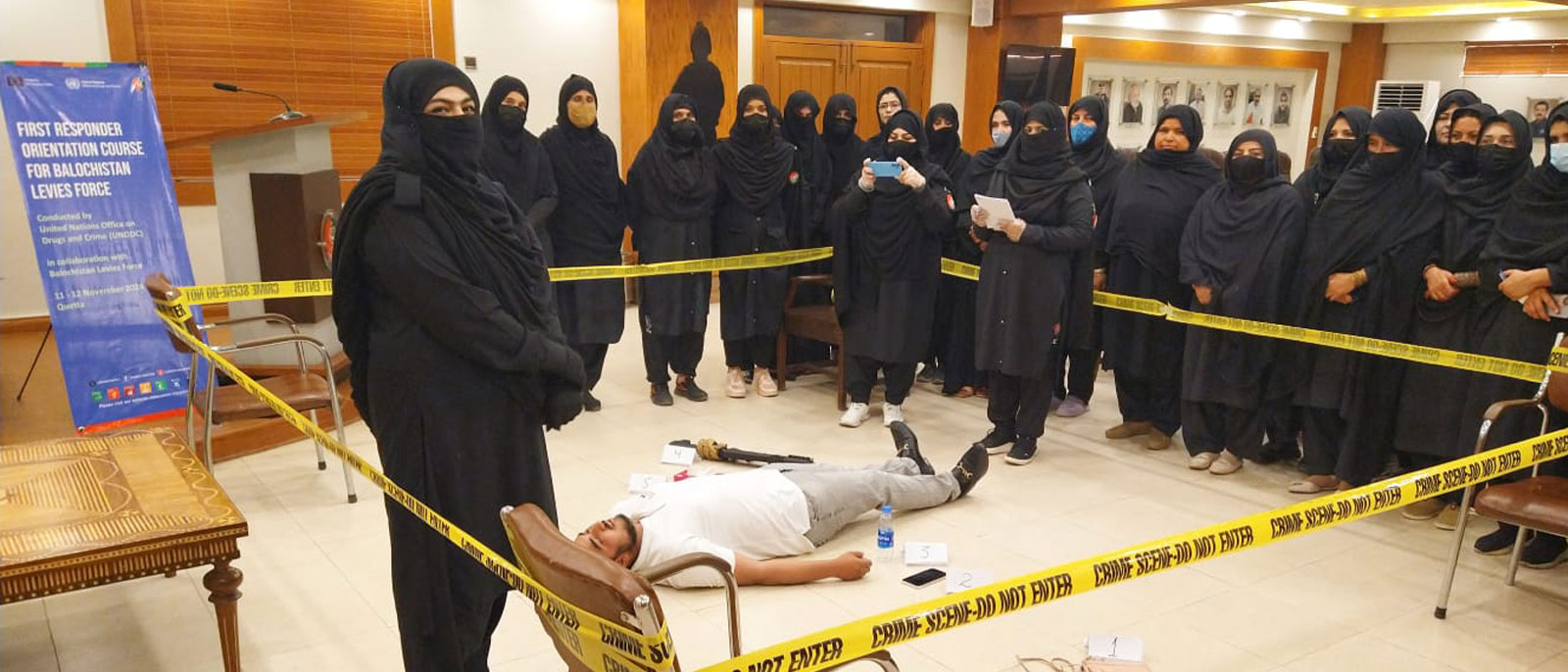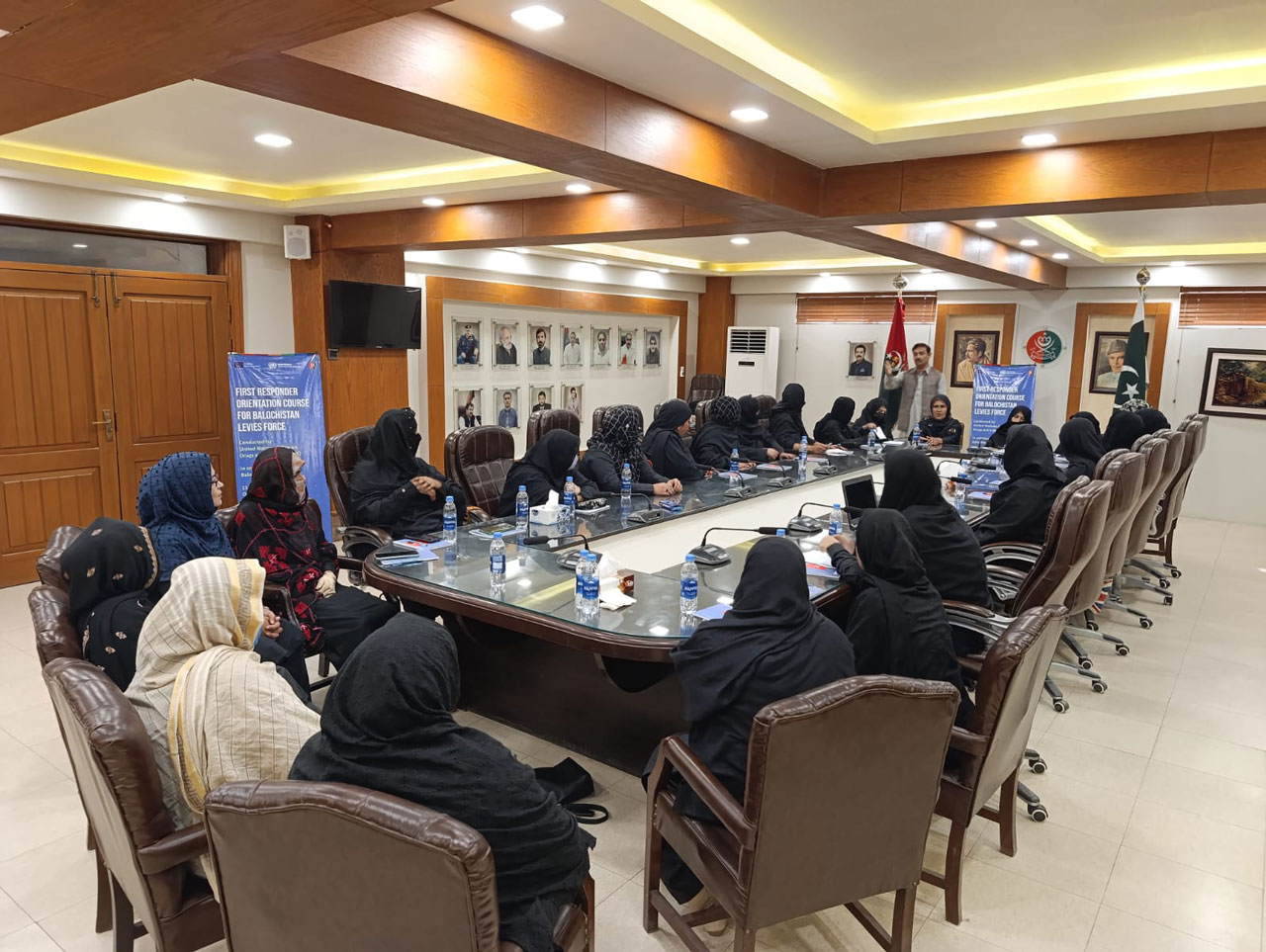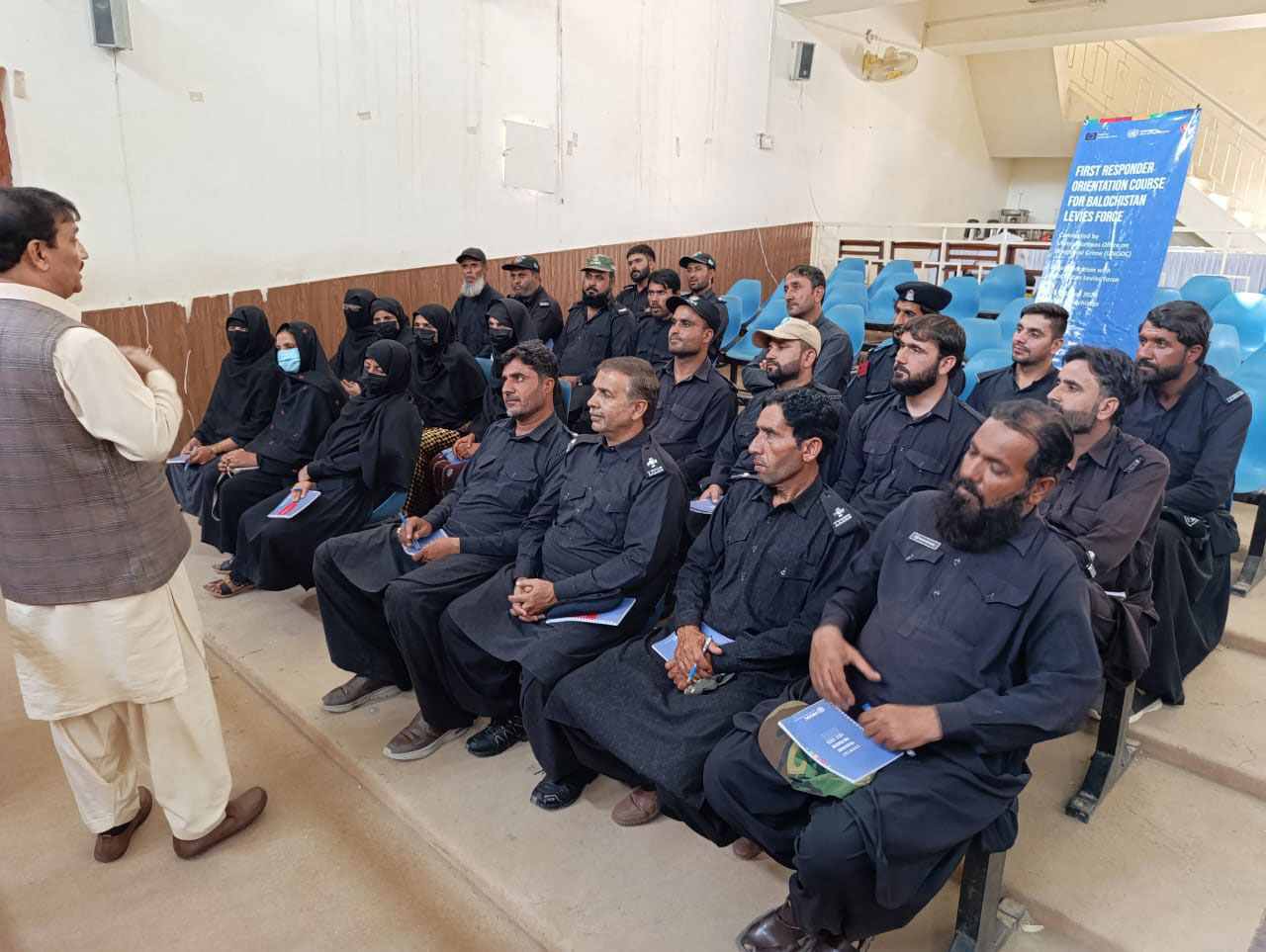15 November 2024, Quetta; United Nations Office on Drugs and Crime (UNODC) recently concluded an intensive training course aimed at bolstering the capacity of the Balochistan Levies Force as first responders to crime scenes. Funded under the European Union’s Deliver Justice Project, the training focused on essential areas of criminal investigation, crime scene management, forensic evidence handling, and effective communication in support of investigations. This initiative is part of UNODC’s broader mission to strengthen law enforcement response capacities within Pakistan, ensuring justice and enhancing public safety.
The training was particularly designed to take a deep dive into the fundamentals of criminal investigation and the role of first responders. Participants received expert-led sessions on how to manage a crime scene, including practical steps for protecting and preserving the integrity of evidence. Special attention was given to identifying, securing, and photographing evidence, emphasizing the critical role first responders play in ensuring evidence is accurately documented and protected for subsequent forensic analysis.
UNODC organized four comprehensive trainings for the Balochistan Levies Force from September 26 to November 12 across Loralai, Khuzdar, Nushki, and Quetta, including a dedicated session for women Levies officials. In total, 102 Levies personnel were trained—61 men and 41 women—enhancing their skills in crime scene management and first response.
Through lectures and hands-on exercises, participants learned about different types of evidence and how forensic principles, such as Locard’s Principle, apply in real-world situations. Interactive group activities and simulations enabled participants to practice interviewing techniques, evidence collection, and documentation, ensuring a practical understanding of how these skills contribute to solving cases.


